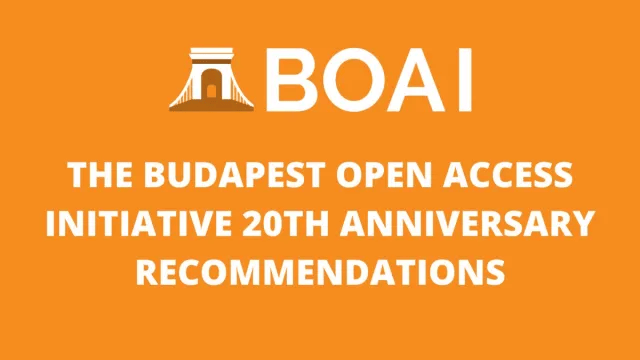Digital nomadism as a structural phenomenon in the global postpandemicera
DOI:
https://doi.org/10.5281/zenodo.15501605Keywords:
digital nomadism, liquid citizenship, urban gentrification, global mobilityAbstract
This article examined digital nomadism as a structural and multidimensional phenomenon that has gained prominence in the global post-pandemic context. Through a qualitative, theoretical-documentary review of peer-reviewed scientific literature published between 2020 and 2024, the study explored the conceptual foundations, spatial practices, and political implications of this emerging form of mobility. Findings revealed that digital nomadism combines remote work, mobile lifestyles, and transnational consumption of territories, producing uneven effects on urban systems, housing markets, and community relations. The study identified tensions between the discourse of freedom and flexibility and the precarious conditions experienced by many nomads, particularly those lacking economic or legal stability. It also highlighted digital nomads’ role as territorial agents contributing to gentrification and spatial inequality in popular destinations. Furthermore, it addressed the limitations of current visa policies, which often favor short-term economic benefits without integrating fiscal responsibility or long-term community engagement. The analysis concluded that digital nomadism disrupts conventional citizenship, work, and urban governance models, and requires inclusive policy frameworks and territorially sensitive planning strategies that reconcile global mobility with social equity and urban sustainability.
Downloads
References
Bednorz, A. (2024). Digital nomad visas and the governance of global mobility. Journal of Sustainable Tourism, 32(1), 22–39. https://doi.org/10.1080/09669582.2023.2 265629.
Bozzi, A. (2024). Digital nomadism from the perspective of places and mobilities: A literature review. European Transport Research Review, 16, 50. https://doi.org/10.1186/s12544-024-00663-z
Chevtaeva, L., & Denizci-Guillet, B. (2021). Lifestyle of digital nomads: Work–leisure balance, mobility, and place attachment. Tourism Management Perspectives, 38, 100828. https://doi.org/10.1016/j.tmp.2021.100828
Choudhury, P., Foroughi, C., & Larson, B. Z. (2021). Work-from-anywhere: The productivity effects of geographic flexibility. Strategic Management Journal, 42(4), 655–683. https://doi.org/10.1002/smj.3251
Cook, C. (2023). Work and precarity in the age of digital nomadism: Beyond the myth of freedom. New Media & Society, 25(4), 721–739. https://doi.org/10.1177/14614448221124506.
Global Citizen Solutions. (2025). Global digital nomad report. https://www.globalcitizensolutions.com/intelligence-unit/reports/global-digital-nomad report/global-digital-nomad-full-report/
Hannonen, O. (2020). In search of a digital nomad: Defining the phenomenon. Information Technology & Tourism, 22(3), 335–353. https://doi.org/10.1007/s40558-020-00177-z.
Hermann, I., & Paris, C. M. (2020). Digital nomadism: The nexus of remote working and travel mobility. Information Technology & Tourism, 22, 329–334. https://doi.org/10.1007/s40558-020-00188-w
Kozak, M., Cetin, G., & Alrawadieh, Z. (2024). Repositioning work and leisure: Digital nomads versus tourists. International Journal of Tourism Research, 26(3), https://doi.org/10.1002/jtr.2732 e2732.
Lacárcel, B., Huete, R., & Zerva, K. (2025). Digital nomads and urban dynamics: Challenges for sustainable cities. Tourism Geographies, 27(1), 52–75. https://doi.org/10.1080/14616688.2024.2300557
Mancinelli, F. (2020). Digital nomads: Freedom, responsibility and the neoliberal order. Information Technology & Tourism, 22(3), 417–437. https://doi.org/10.1007/s40558-020-00188-w
Orel, M. (2019). Coworking environments and digital nomadism: Balancing work and leisure in multi-locational settings. Review of Managerial Science, 13(3), 499–510. https://doi.org/10.1007/s11846-018-0299-4
Qosim, N., Rukmana, A. Y., & Usup, U. (2025). The impact of digital nomad economy on local businesses: Study of MSME market changes in popular destinations in Indonesia. The Eastasouth Journal of Social Science and Humanities, 2(2), 113–130. https://doi.org/10.58812/esssh.v2i02.474
Rainoldi, M., Ladkin, A., & Buhalis, D. (2025). Digital nomads’ work–leisure practices: A sociomaterial perspective. Annals of Tourism Research, 111, 103904. https://doi.org/10.1016/j.annals.2025.103904
Rainoldi, M., Ladkin, A., & Buhalis, D. (2025). Rethinking the work–life balance of digital nomads in the post-pandemic context. Annals of Tourism Research, 96, 103582. https://doi.org/10.1016/j.annals.2024.103582
Sciuva, E. (2025). Geographies of digital nomadism: A research agenda. Geography Compass, 19(1), e70016. https://doi.org/10.1111/gec3.70016
Webb, A. K. (2024). Digital nomadism and the challenge to social citizenship. Global Policy, 15(3), 301–313. https://doi.org/10.1111/1758-5899.13377
Zhou, Y., Günay, M., & Toksöz, G. (2024). Attracting digital nomads: Smart tourism policies and destination branding in the global South. Journal of Destination Marketing & Management, 32, 100839. https://doi.org/10.1016/j.jdmm.2024.100839
Published
Data Availability Statement
The datasets used and/or analyzed during the current study are available from the corresponding author on reasonable request.
Issue
Section
License
Copyright (c) 2025 Raquel V. Peña, Javier A. Pérez (Author)

This work is licensed under a Creative Commons Attribution-NonCommercial-ShareAlike 4.0 International License.


































